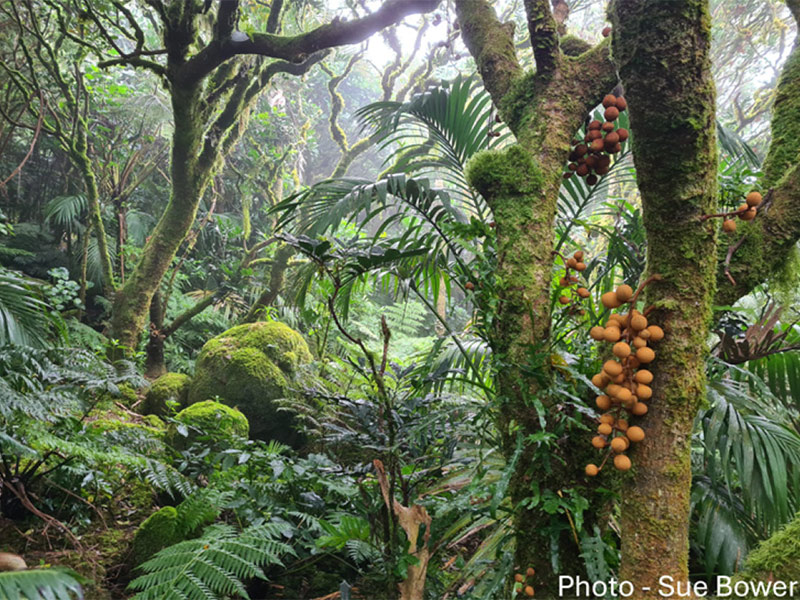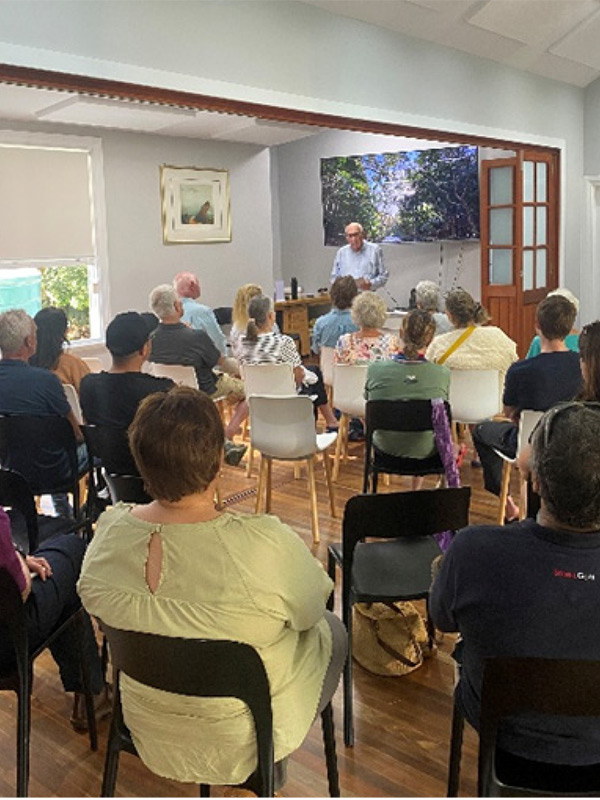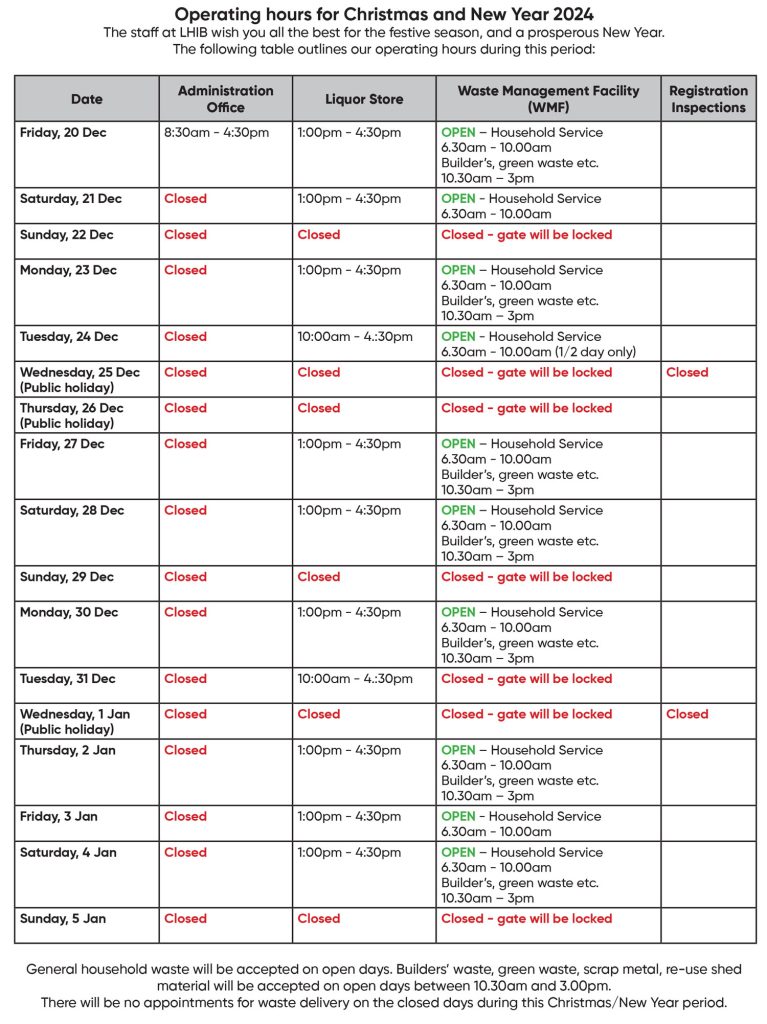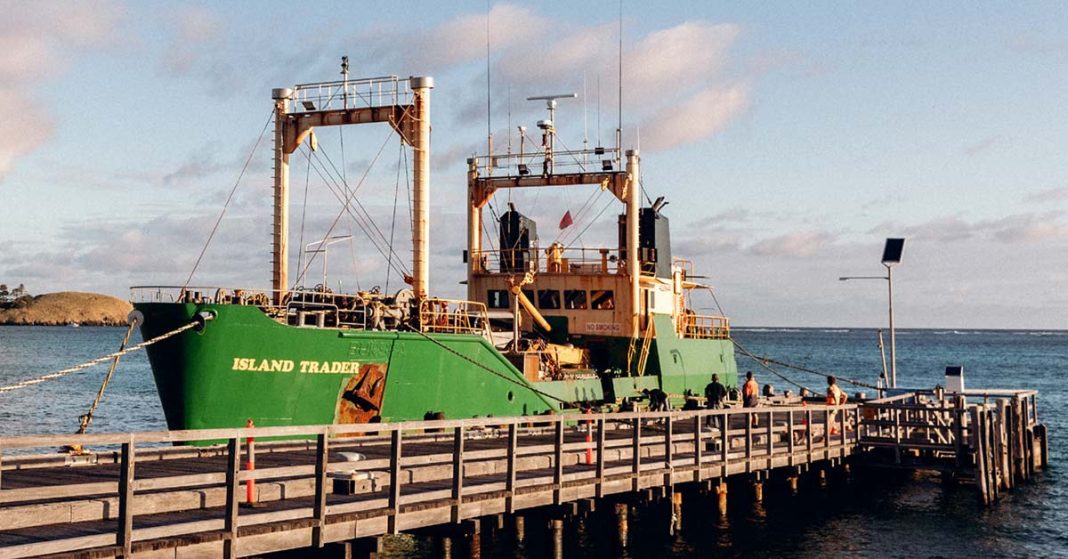Critical Infrastructure Program update
The Critical Infrastructure Program is currently being developed by the Lord Howe Island Board with NSW National Parks & Wildlife Service, and their consultant project team.
Over the coming months, there will be further opportunities for members of the community and key stakeholders to provide input to the development of the Program.
Drop-in sessions will take place at the Community Hall:
• Tuesday, 3 December: 10am-12.30pm, 2.00-4.00pm, and 5.00-7.00pm
• Wednesday, 4 December: 10am-12.30pm and 2:00-4.00pm
You’ll be able to share your questions and comments, one on one, with key team members.
The upcoming consultations will update you on the technical studies undertaken since May in both the South Zone and North Zone, demonstrating how this work has been used to inform the development of the concept design plans and options – with a view to establishing a master plan. We’ll also share the latest information about progress towards a new vessel.
Find out more about the Program and upcoming consultations, and read our updated FAQs on the LHIB website.
You can also provide comments by emailing the Project Team at CIP@lhib.nsw.gov.au.
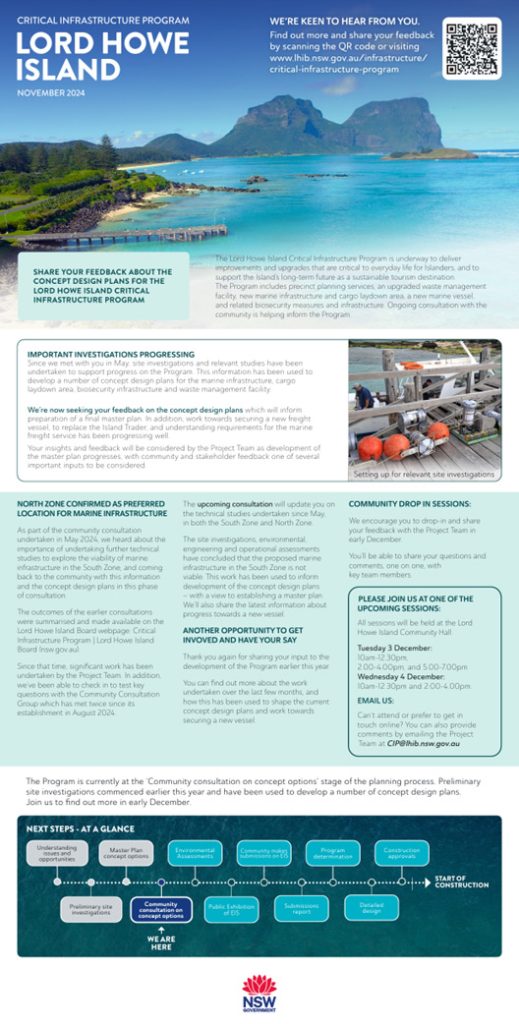
Helicopter winch operations – October/November 2024
The first of two helicopter winch operations for this summer concluded on 17 November 2024. During this operation, members of the LHIB Environment Unit and external contractors were winched into remote areas of the southern mountains to carry out essential weed control activities as part of the Weed Eradication Program.
The 2024 operation saw significant progress of remote coverage, with a total of 33.3 hectares searched. This included 154 km travelled on foot and 1,227.5 hours worked across 9 operational days. A total of 1,588 weeds were removed, with 92% of these being seedling and juvenile plants. The helicopter was also utilised to retrieve and deposit gear in the southern mountains.
This operation follows a successful winch operation in November, 2023, which resulted in the removal of 2,261 individual weeds and the thorough searching of 39 hectares of rugged terrain over 12 operational days.
Helicopter access to these remote areas is essential to ensure time critical search and control efforts in difficult to access areas. Helicopter winch operations are scheduled to be undertaken again in February, 2025.
This operation is supported by Commonwealth funding from North Coast Local Land Services and Saving Native Species, as well as state funding from the NSW Department of Planning and Environment’s Biodiversity and Conservation Division through the Saving Our Species program.
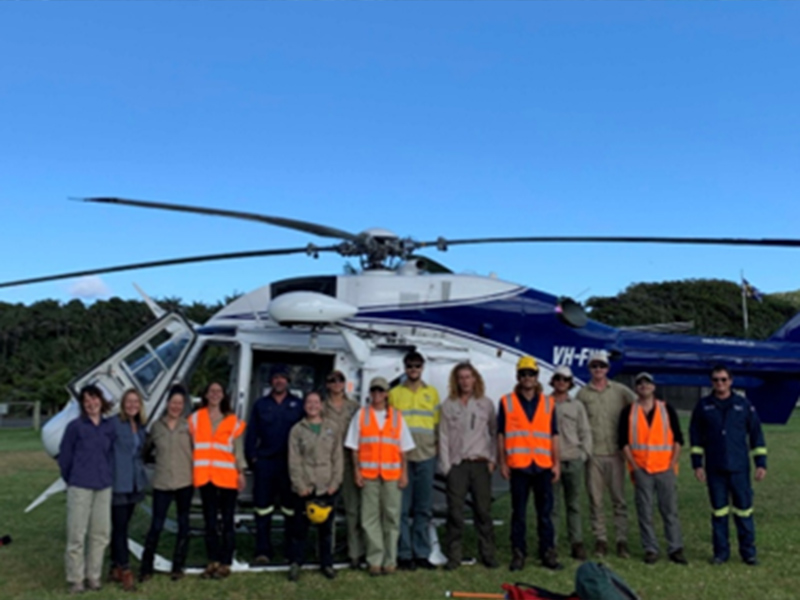
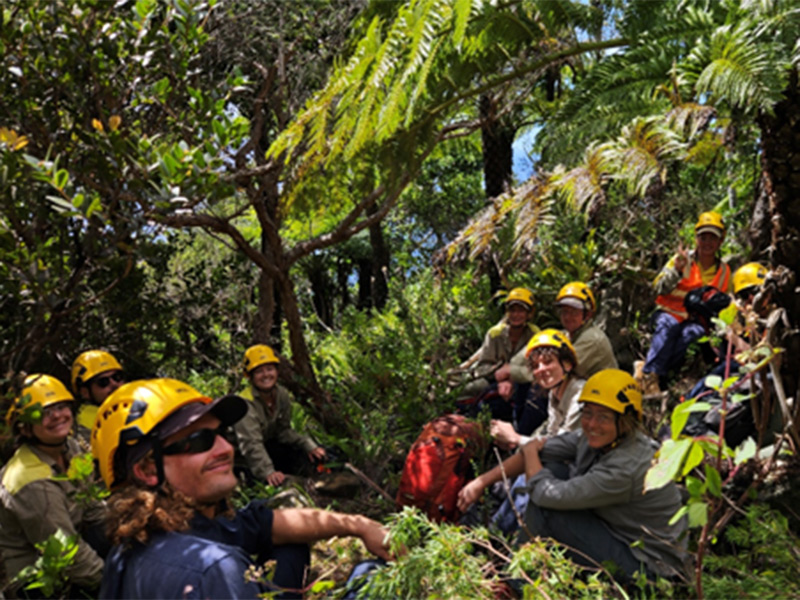
Celebration of Island’s conservation story
During November, Lord Howe Island community members came together to celebrate the Island’s remarkable conservation achievements.
The event showcased the Island’s history and future of biodiversity restoration and biosecurity enhancement through photography, presentations, and interactive forums.
Visitors had the opportunity to view photographs of the Island’s history of conservation efforts. Following an opening by the children of the Lord Howe Island Central School, a series of pre-recorded talks commenced with Sally Montgomery presenting findings of her studies regarding the LHI community conservation ethos and history. This theme was further highlighted by presenters Matt Retmock, Barney Nichols and Ian Hutton.
Other presentations were recorded and shown over the following day from Melanie Massaro, Terry O’Dwyer, Nicholas Carlile, Isabel Hyman, Andrew Denham, Craig Stehn, Allie Nance, and Joel Christian. These talks offered insights into the Biodiversity Benefits program, global biosecurity and biodiversity recovery case studies. Rohan Cleave gave an interesting and informative presentation about phasmids and the breeding program he is leading at Zoos Victoria.
Two interactive forums were facilitated by Cristina Venables, Team Leader of World Heritage, and Darryl Birch, Team Leader of Biosecurity. These forums covered topics including the Lord Howe Island Biodiversity Management Plan, case studies of successful programs, and the future of biosecurity on the Island.
Thank you to all presenters and photographic contributors: Jack Shick, Dean Hiscox, Ian Hutton, Jonny Fuhri, Justin Gilligan, and the LHI Historical Society and Museum. A special thank you to the students and teachers of Lord Howe Island Central School for their performance.
The event was a wonderful opportunity for the community to reflect on conservation successes, discuss ongoing challenges, and continue the important work of protecting the Island’s unique biodiversity for future generations.
Some presentations will be available online for those unable to attend, and there will be further opportunities to be involved in the future of biodiversity and biosecurity on the Island.
